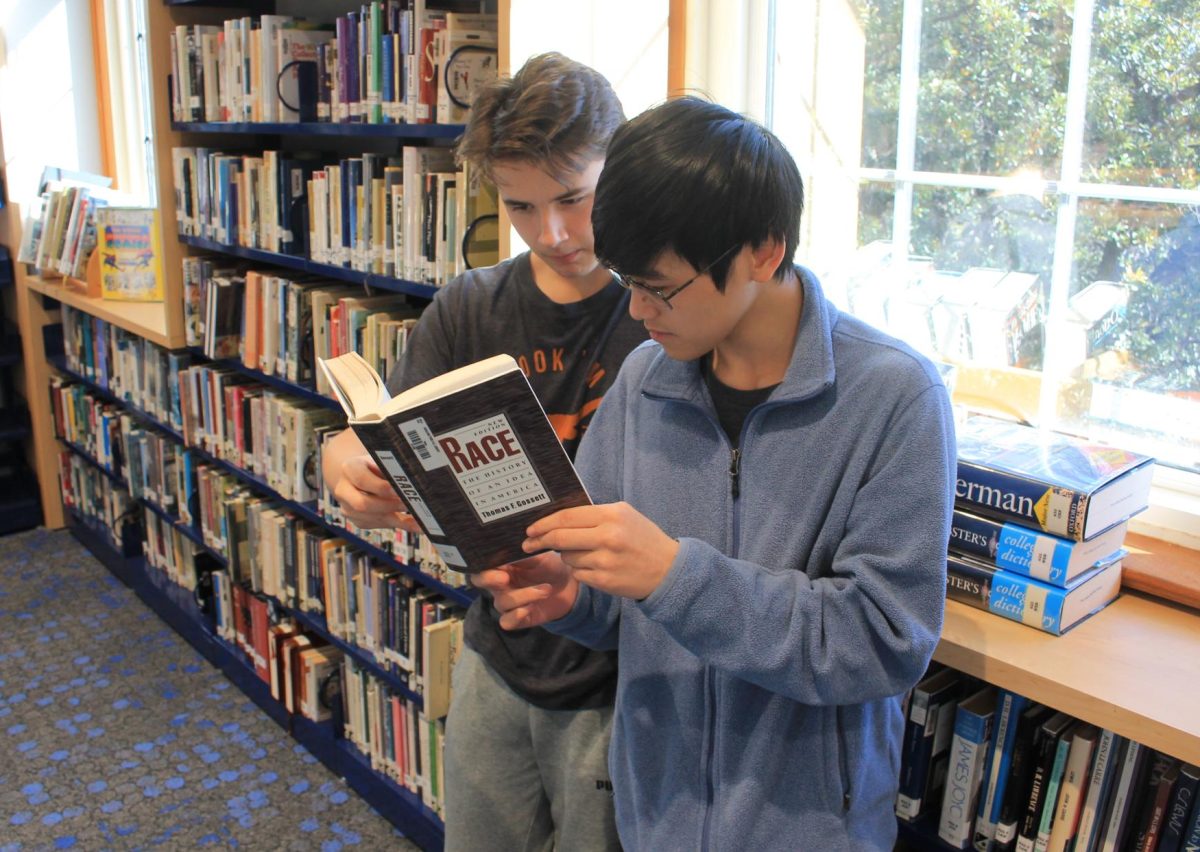On Dec. 12, the school board adopted new district-wide policies determining what can and cannot be used as “instructional materials” in school. The new policy is available on the school board’s website under the titles “EF(Local)-instructional resources.”
Newly implemented procedures include placing materials on a public 30-day waiting list before usage, a procedure for challenging instructional materials and a mixed staff and parent committee to review and determine the merit of challenged materials.
“The policy was approved in December and we are continuing to have discussions as principals and district level leadership,” principal Jeremy Gilbert said. “People can expect that for the 2024-2025 school year, this policy will be implemented with fidelity.”
According to the new policy, “instructional resources” refers to textbooks, library acquisitions, supplementary resources for classroom use, classroom libraries and any other instructional resources, including electronic resources, used for formal or informal
teaching and learning purposes.
“Last year, before we had a reconsideration policy, it was up to the principal on whether or not they wanted to remove the book from the library,” Boone Elementary School librarian Rachel Hill said.
In early December, the school board sought more oversight into what students could access on school campuses by creating a process for parents and adult students to challenge any material used for educational purposes. The district’s new policy encourages both parent and district approval for resources of school campuses.
“Under this new policy, [challenged books] will go to a whole committee so that multiple people will read it and judge if it should remain in the library or it needs to be moved to another level or banned,” Hill said.
The catalyst for this alteration was concern about tailoring students’ curriculum to individual family needs.
“Some community members were voicing displeasure in some of the books that were available in a library in one of our schools,” Gilbert said. “[The school board] wanted to make [sure] that our parents had a process to follow so that they could protest or contest a book that they felt may not belong.”
This committee will consist of three staff members and three parents, as well as a non-voting member of the district’s central administration. A form was sent out to teachers and parents, asking them if they would participate in the committee.
“Once we get notification that there is a resource that is going to be contested, they pick from each pool, there’s a parent pool and there’s a teacher pool,” Gilbert said.
When a material is first introduced into a lesson plan, it is publicly posted for 30 days. If there is no contention during the waiting period, the material can officially enter the curriculum.
“We will have to get acclimated to knowing that there’s gonna be a 30-day lag between us deciding on a resource and when we start using it,” said Gilbert.
In the past, parents of high schoolers have been able to request that their children don’t participate in any section of the curriculum, and their teacher would have to work to create a personal substitute curriculum.
“The policy committee would like to see that process in effect from fifth grade through 12th grade instead of just ninth grade through 12th grade,” assistant superintendent for education services Jennifer Collins said.
Collins also noted that, although possible, she does not expect to see this process extend into grades below third due to the sheer scope of books read. Collins notes that younger children often read four to five books a day.
The new policy stands to have a large effect on how teachers and staff are able to do their work, and will likely require significant changes.
According to Gilbert, the new policy will require flexibility from teachers, as well as foresight to account for the 30-day waiting period.
“The challenge process will add to the teacher workload. It will require extra work because you’ll have to meet [about the material],” Gilbert said. “If it’s a book, you’ll have to read the book and that will be done outside of school time [by] who will be on these committees.”
This policy will also specifically affect school librarians, as it changes how they are able to acquire books for their schools.
“It’s a lot more procedure than we had beforehand,” Hill said. “Before, just the librarians were entrusted to use our professional resources to acquire a new book. Now we have more steps to follow.”
Many of these steps are still being hammered out. Although the policy was effective immediately after approval, the true implications and nuances of the changes are still being discovered and actualized.
“Our board of trustees understand that it’s going to take time to put into place, and we also don’t want to catch any administrators off guard,” Collins said. “We’re trying to figure some things out and see what’s working and what’s not working.”
Although this policy creates a process to remove books, as well as other materials, from classrooms, Gilbert is adamant that he does not consider this policy to be ‘book banning.’
“The intent of this policy is not a book banning policy,” Gilbert said. “The intent of this policy for our school board is to allow our community, our parents to have more insight into what is being used in our classroom.”




